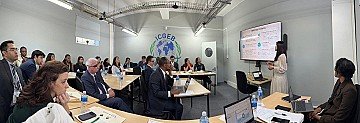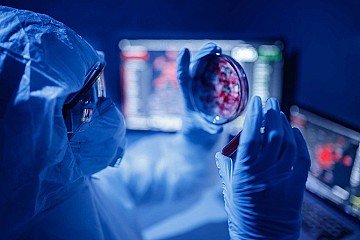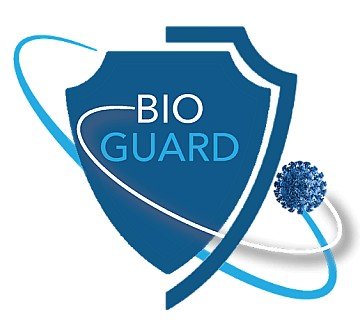BIO-GUARD is an ICGEB project to enhance laboratory capacity for surveillance and response to biological threats in LMICs. The project was launched during the Global Partnership of the G7 assembly under the Italian Presidency 2024 in an effort to strengthen global biosecurity.
The vision of BIO-GUARD is to enhance the LMICs’ ability to detect and respond to biological threats by incorporating Bio-Threats Units within existing healthcare diagnostic laboratories. These units will receive support through a three-tier system, including comprehensive practical training in pathogen detection (i.e. molecular assays, next-generation sequencing, etc.), advanced short-term fellowships for intensive training at ICGEB’s state-of-the-art facilities, financial grants to upgrade local medical laboratory system and infrastructure and the transfer of cutting-edge technologies for pathogen detection to the Bio-Threat Units.
BIO-GUARD builds on the Molecular Virology Laboratory long-term experience in managing virus diseases and in the implementation of recent initiatives like TBFVnet, FLUFET and EXPANDIA. These projects focus on the vital role of diagnostic tools in early case detection, surveillance, and outbreak management. It empowers local laboratories to produce diagnostic reagents and conduct genomic sequencing, while also training health professionals to undertake independent research and tackle health challenges.
Leveraging the networks established by the EXPANDIA project, BIO-GUARD aims not only to enhance scientific skills but also to foster a collaborative network across borders. The initiative aligns with international norms, including the Biological Weapons Convention (BWC), thus strengthening a worldwide commitment to biosecurity and the ethical conduct of biological research.
Countries in the global south are particularly vulnerable to biothreats of natural, accidental, or deliberate origin, primarily due to their limited R&D capabilities, poor safety infrastructure, and lack of established procedures. ‘BIO-GUARD’ seeks to mitigate these issues by applying cutting-edge surveillance and detection techniques and providing customized training and resources for local scientists and healthcare professionals to effectively handle biological threats. It also strives to encourage international cooperation for a unified approach to biosecurity and policy integration.
The launch of BIO-GUARD is expected to significantly enhance biosecurity infrastructure and expertise across the participating countries. Moreover, an online platform will support continuous collaboration and assistance among the participating scientists.
Over the last decade, the ICGEB has played a significant role in fortifying global health partnerships and improving the capabilities of numerous countries to prevent, detect, and respond to outbreaks more effectively. With substantial support from international collaborators such as the Norwegian Ministry of Foreign Affairs, the Implementation Support Unit (ISU) of the BWC and the Italian Ministry of Foreign Affairs, ‘BIO-GUARD’ has achieved considerable progress in enhancing global health security capabilities via specialised training programs (Virus Detection and Biosecurity 2023 and Science Diplomacy, Biosecurity and Virus Detection Course 2024) and fellowships (ICGEB Early Career African Women in Science Fellowship).
By introducing relevant techniques and educating national experts for detection, BIO-GUARD reinforces its commitment to reducing biological risks and endorsing peaceful scientific practices crucial for protecting public health.
The EXPANDIA project complements BIO-GUARD by focusing on the critical role of diagnostic tools in early case identification, surveillance, and outbreak management. It enables local labs to produce diagnostic reagents and perform genomic sequencing, while training local end-users to conduct independent research and responses to health challenges.
The project aims to address immediate health threats and build sustainable capacity, enabling nations to handle their biosecurity challenges and fostering a more secure and resilient global health framework.
For more information:
Dr. Alessandro Marcello, Group Leader, Molecular Virology
Email: [email protected]


